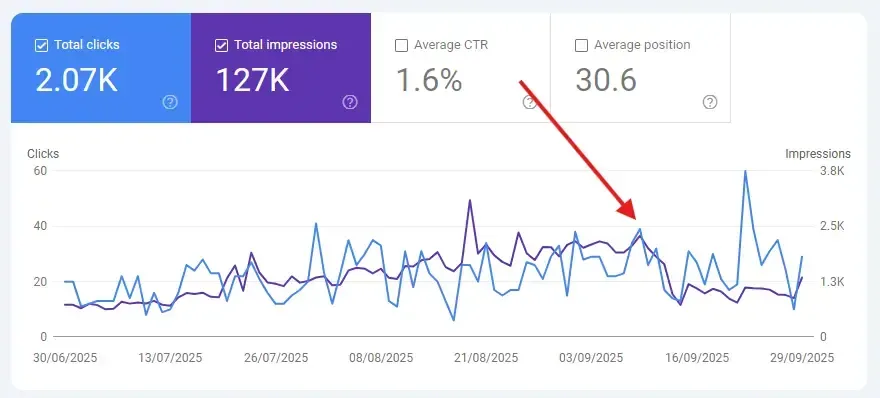Does your website really need a blog?
When you have already taken the step to create a digital presence for your business with a website, you may think that you have digital marketing and the internet covered. After all, you have every reason to be proud of its web design; it’s technically optimised for search engines, user friendly, and it looks great too.
You’ve created five pages of information to clearly explain the products and services you offer, and yes, you’ve researched about what is SEO and how it works, so you’ve included keywords in the content to boost your digital marketing success. Life is good.
However, after a while you realise that your website is not generating the leads that you were expecting, and this is why you need a blog. Businesses that consistently blog generate 67% more leads than businesses that don’t (source).
What is a blog?
Blogs began as digital journals for people to document their lives and experiences, but they soon became a valuable online marketing tool used by businesses to connect with their target audience.
A blog consists of a collection of business-related posts written in a way to encourage engagement – either to take a specific action, share on social media, or simply to inform readers about the different scenarios that the products or services are relevant in.
Why are blogs good for business?
If product descriptions and website blurb show a stitch, an active populated blog section shows the whole tapestry. It gives the full picture of what the business does, how it does it, why it does it and what visitors can achieve when they become a customer.
Think about how you use Google and the questions you ask. Oftentimes the search results you are given are from a business’ blog, but it’s not always easy to identify what the product being marketed to you is – as a reader, it’s simply relentlessly helpful content. Examples include:
· How to guides
· Reviews and recommendations
· Hacks
· Definitions
· Tips
· Tutorials

Blogs foster strong relationships with customers
Consistently publishing engaging, quality and informative content builds and strengthens customer relationships with the brand. Addressing specific needs, pain points and challenges and providing solutions places the business in a position of authority.
Blogs develop trust in the business
By developing your brand’s persona and sharing industry specific knowledge you confirm it as a reliable and confident voice of authority in its field. It demonstrates to customers you know what you are talking about but also that you understand them. Purchasing decisions are emotion led, so if there is trust in the brand, visitors are more likely to buy from you.
Blogs differentiate your business from competitors
Every industry is populated by multiple businesses offering similar services and products for comparable prices. As a content marketing tool, a business blog gives the opportunity to stand out from the crowd and show consumers some personality and flair, the expertise and extra value you give.
How can a blog grow my business?
There are two threads to this conversation. One is customer-focused and the other Google-centric. To understand how a blog can grow your business, it’s important to understand the historic relationship between website content marketing and SEO, and why it has morphed into a symbiotic relationship.
Website content and SEO were considered separate entities. Content was injected with SEO keywords to trick the search engines to rank the website higher and often at the expense of the website visitor’s experience. People used all kinds of trickery to fool the search engines - keywords stuffed into content to the extent it made no sense or published in the same colour as the background, so they weren’t visible to the visitor. The exclusive goal of digital marketeers was to increase website visitor numbers. Even with a very low conversion rate, because the number of visitors was so high, sales still happened.
Google put a stop to unscrupulous blackhat SEO methods by punishing/ banning sites that practiced them. The rise in poor websites impacted the quality of the search results, which created the need for some hardcore interventions from Google.
- February 2011 – Panda core update
- August 2013 – Hummingbird core update
- March 2014 – Google adds E-A-T (Expertise, Authoritativeness, and Trustworthiness) to the guidelines.
- December 2022 – Google introduces E-E-A-T, (adding an extra “E” for “Experience”).
- May 2023 – Google introduces the ‘Topic Authority' ranking system that delivers relevant and expert content, favouring local publications and original reporting.

Google regularly releases updated SEO guidelines and algorithms to push webmasters to up their content game. It is fair to say these listed updates created the biggest ripples - all promote content quality as a ranking system. A blog is the ideal breeding ground to showcase the best SEO content. If you play ball, you are rewarded with a high-ranking position in the SERPs and can enjoy greater organic visitor numbers; ignore at your peril.
Blogging drives traffic to your website
Google ranks webpages and not whole websites, so you need to maximise your website’s online real estate – every post is a golden SEO opportunity to give searchers the information that they are actively looking for while helping Google index your site correctly.
Keyword research remains vital to SEO success. Use blogs to target more of the less competitive long-tail keywords and industry niche words searchers are using. Although you get fewer visitors, you are more likely to rank higher and get more clicks and conversions. A great example of this is ‘Dr Marten boots’ - there are thousands upon thousands of results. If you search ‘8 eye mens Dr Marten cherry red boots Christchurch NZ’, the search result numbers are significantly less, but that searcher is a hot lead – they know exactly what they want!
Unlike Google Ads, blogging does not typically deliver an instantaneous high level of organic traffic to your website, rather it’s a long-term digital marketing strategy to fuel a steady increase of visitors to your website – something of great value to small businesses.
Digital Presence is a one-stop shop for all your digital marketing needs. Whether you need a new on-brand website, want to get noticed with Christchurch local SEO, or want to access our content writing service to further free-up your time, we’re here to help. Call us now on 0274 278047 or drop us a line at hello@digitalpresence.co.nz for a jargon free chat .












